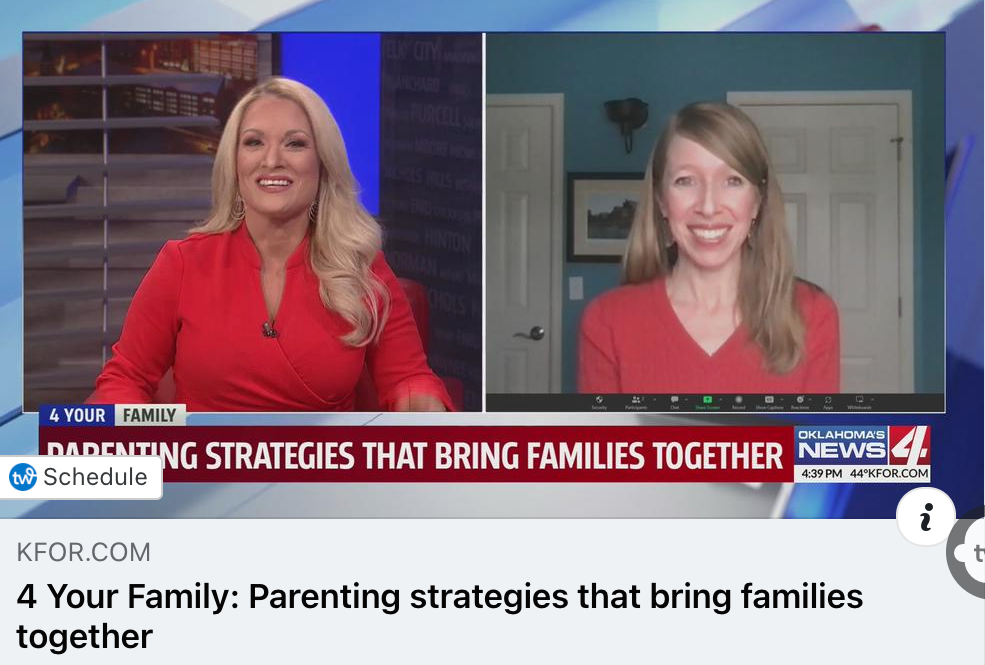
Sign in
Don't have an account with us? Sign up using the form below and get some free bonuses!

How would you feel if I told you pushing boundaries is developmentally normal for children, and in fact, it's healthy?
I imagine you'd have mixed feelings. That makes sense.
On one hand, we want our kids to develop healthy boundaries of their own, and we're their safe place to practice. On the other hand, we need to have limits sometimes, and having a child push against them can be frustrating.
Here are three ways to make peace with a child who seems to thrive on pushing boundaries.

Reality is that as parents, we're role models. Additionally, many of us were raised with an unhealthy view of what boundaries should look like.
If we grew up with parents who we "had to obey or else," we may have learned one of two things:
We wrongly believe that we don't get to have boundaries, so we may struggle to stand up for ourselves. How this manifests in parenting is that we may end up being too permissive, especially if children express big feelings when we give a voice to our needs.
The risk: We lose ourselves in the process and likely end up resentful.
The solution: Understand that, as a therapist once told me, "You're allowed to take up space." In other words, you can examine your own needs and be confident that every single one of them is valid. You can stand up for yourself while still raising your children with patience, connection, and compassion.
When you lean into trusting your mind and body, learning how to peacefully express yourself in ways that do no harm, you're modeling for your child the benefits of having boundaries.
Your kids will learn that they don't have to be compliant in order to be valued.
We have boundaries that are too rigid, and we force our children to respect our limits every time, without question.
The risk: We push our children away. Just like if we put too much pressure on a twig, it will break. That's not what we want to do to our relationship with our children.
The solution: We learn that, yes, we can have limits, but the best limits and boundaries are the ones that we co-create with our children. Kids push back less when they feel they've had a say in what we're asking of them (and it also reflects best practices of conscious parenting).
Here's a video about co-creating goals and boundaries with our children.

When we learn to parent peacefully, it's amazing how much less backtalk we feel from our children, and how we work to understand what's going on beneath their behavior.
If we weren't raised this way, it can be triggering while we work to stay grounded. Remember that we're changing because the status quo isn't working, and growth can feel messy. It's an investment in our future with our kids, though.
Like all growth, we'll be able to look back someday and see how far we've come.When a child decides to push boundaries, it's part of their education for life.
If our hope is to increase self-sufficiency and emotional maturity--and limit risk--we have to let our children practice setting their own boundaries with us.
It would be downright risky to raise a child who only knows how to say "yes" no matter what's asked of them.
Let's say your child is refusing to go brush their teeth. That's hard, especially since we know what happens when we ignore dental hygiene. Rather than yelling and making them afraid of the whole process (emotional discomfort will not make them more likely to do it), try one of these approaches:
Bring the toothbrush to them. Who says it has to stay in the bathroom?
Invite them to dance up the hall with you
Bring the toothbrush to life, giving it a silly voice
Important note: use play only when the child is emotionally regulated, and never in a patronizing way.
For an older child, we can still have a lighthearted approach. We can brainstorm strategies together that feel mutually peaceful.
As an example, let's say your child is pushing boundaries related to technology. You've told them to turn off all forms of technology at 8 p.m., but you hear notifications coming from their bedroom at 10.
Rather than simply taking the device out of their sleeping environment, you talk to them and ask how they suggest they manage their time. You listen and see if you can come up with a win-win.
Change happens when kids (and all people) feel emotionally safe and supported, not when they're forced to achieve others' goals without question.

When children push limits, our job is to understand why they're pushing the limit and work to understand them rather than control them. When we make room for them to grow and learn--and learn that it's safe for them to do so--they grow into adults who can adapt, negotiate, and have healthier relationships with others.
